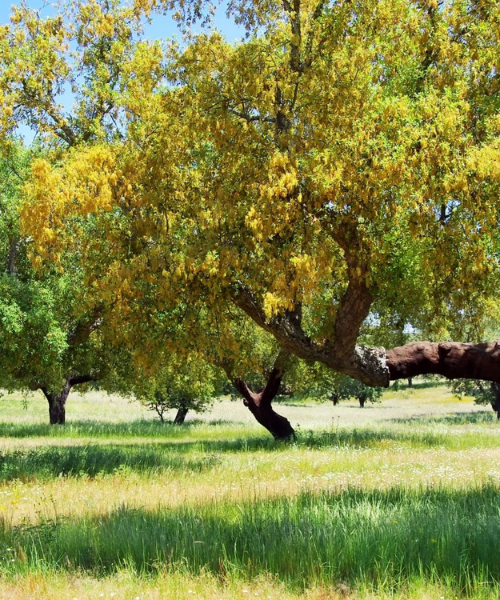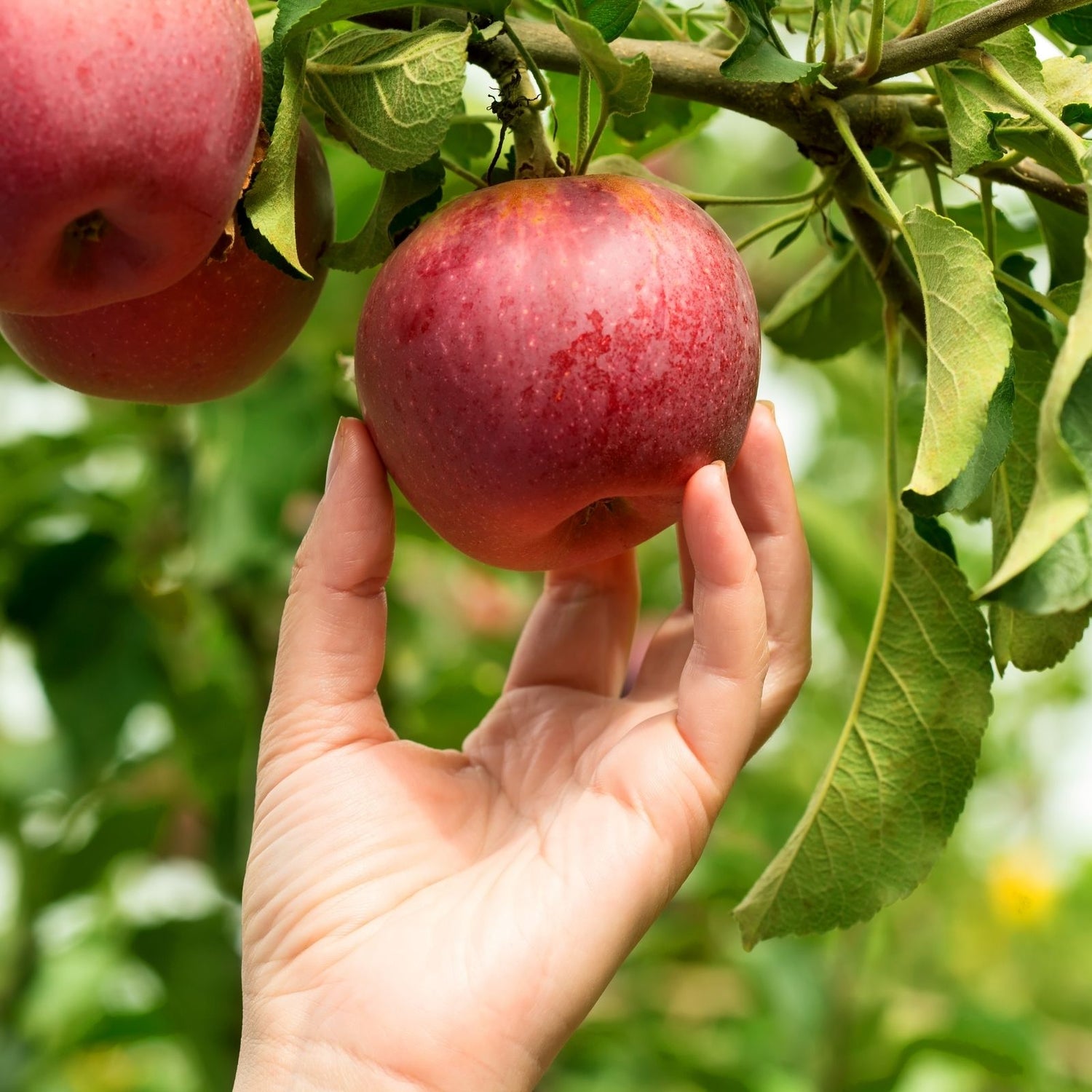Materials & Manufacturing

From nature for you
Plant-based leather alternatives, so-called "vegan leather" such as cork or "apple leather" / apple skin, are used to manufacture the large number of handbags, backpacks, purses, cases and jewellery in the Estilo Botanico Shop.

Cork
Cork is obtained by peeling the bark off the cork oak. The cork oak is native to Southern Europe and North Africa.
Cork is Portugal's oldest export product and even today the country is the world's largest producer and supplier of cork.
Cork oaks can grow to be several hundred years old and are peeled off multiple times during their lifetime. What remains is a cork oak with a reddish trunk. The cork sponge is then freed from bark and processed further. As a hard-wearing and versatile material, cork has long since conquered the fashion industry.
Apart from the income that cork oaks generate for the population in rural regions, they are useful in many ways. Cork oaks do not burn easily. Therefore, they are the ideal plants for regions with a risk of forest fires. They also provide shade in the hot summer and provide nutrients and habitat for animals.

Apple
Apple Skin is a plant-based leather alternative derived from food industry waste. After the production of apple juice, the pulp and skin remain, which are normally thrown away. A company in South Tyrol has developed a process in which the local apple residues are processed into a leather-like material that is recognized by PETA as vegan.
The further processing of apple scraps helps reduce food waste. In addition, no animals are involved in the production of vegan leather. So they are not harmed and greenhouse gases or methane emissions can be saved.

Wine
Several billion liters of wine are produced worldwide every year. But what happens to the part that doesn't end up in the bottle: the skins, seeds and stalks?
The Italian Gianpiero Tessitore, together with various research centers in Italy, has developed a process to obtain a vegan leather alternative from the residues of wine production. He founded a company called Vegea and patented his invention in 2016.
The idea is innovative and sustainable in many ways. The material for bags and accessories made from vegan "wine leather" does not have to be specially manufactured, but even offers a use for the many tonnes of waste from wine production. In addition, the manufacturing process is free of toxic solvents, heavy metals and harmful substances for people and the environment.

Pineapple
Piñatex is the name of the vegan leather substitute made from pineapple.
The Spaniard Dr. Carmen Hijosa has spent years researching a plant-based leather alternative made from pineapple leaves. These are very robust and flexible and accumulate in large quantities in the Philippines during the pineapple harvest. The long fibers are extracted from the leaves on the plantations. What is left can be used as organic fertilizer.
For the pineapple farmers, the processing of the leaves is an additional, valuable source of income.
A single square meter of "pineapple leather" is made from around 480 sheets. However, since this is a by-product of the pineapple harvest, no additional energy or water resources are required.
After the fibers have been washed, dried and degummed, a fibrous material is produced which is transported by ship to Spain for finishing.

Cactus
The Nopal cactus or prickly pear is a true all-rounder. It is not only suitable for cosmetics or delicious Mexican dishes, but also as a plant-based substitute for conventional leather.
The vegan cactus leather is an extremely sustainable and environmentally friendly material.
The cactus species is native to Mexico and needs very little water. The Desserto company grows Nopal without the use of chemicals such as herbicides or pesticides. Rainwater is used for irrigation and the leaves are dried in the sun to keep the organic ranch's energy consumption low. Desserto only harvests the mature leaves of the plant without damaging the cactus itself. So there is a new harvest every 6-8 months.
Cacti also have a high CO2 binding capacity. The production of "cactus leather" therefore absorbs more CO2 than it generates.

Design and production
At Estilo Botanico, a fair and sustainable way of working is important throughout the entire production process: from the extraction of the raw materials to the completion of the end product.
The vegan bags and accessories are made with great care by small and exclusive labels in Europe. Local fashion designers and artists create the templates and patterns for these special products.
The quality speaks for itself - a revival of fashion production in Europe!
